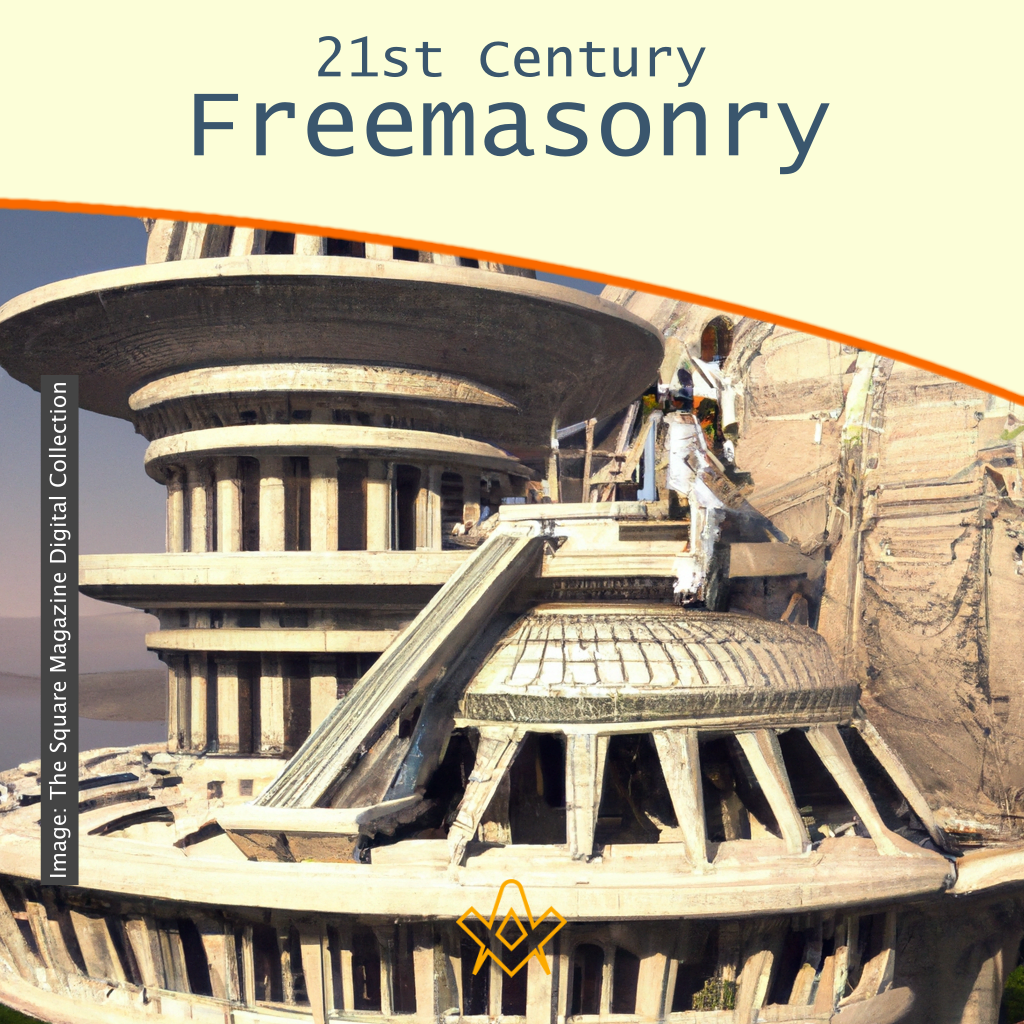A recent article in The Times of London entitled “‘Dull’ masons in Scotland try to carve out more exciting future” (Marc Horne, 6 Jan 2023).
Which again brings us back to the regularly asked question “is Freemasonry (as we know it) dying?”
“When we build, let us think that we build forever. Let it not be for present delight nor for present use alone. Let it be such work as our descendants will thank us for; and let us think, as we lay stone on stone, that a time is to come when those stones will be held sacred because our hands have touched them, and that men will say, as they look upon the labor and wrought substance of them, ‘See! This our father did for us.’”
– John Ruskin, The Seven Lamps of Architecture (1849)
Here one Master Mason shares his views of the strengths, and the challenges for 21st century Freemasonry.
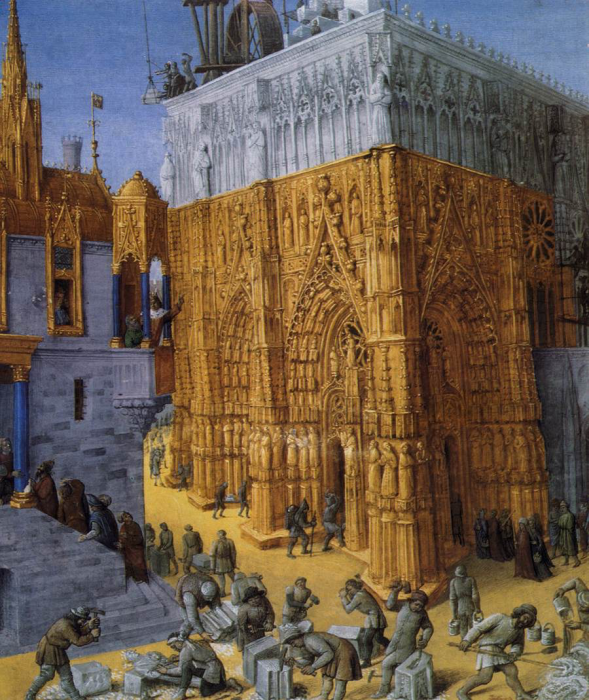
The Building of the Temple by Jean Fouquet (c.1465).
IMAGE LINKED: wikimedia Attribution 4.0 International (CC BY 4.0)
Freemasonry, also known as the Masonic fraternity, is a fraternity and fraternal order that has a long and complex history dating back to the medieval guilds of stonemasons.
It is a fraternity that promotes the values of brotherhood, charity, and truth, and it has a strong tradition of ritual and symbolism.
In recent years, there has been some debate about the future of Freemasonry in the 21st century.
Some people have argued that the fraternity is in decline and that it is struggling to attract and retain new members.
Others have argued that Freemasonry is still thriving and that it continues to be a relevant and influential organization in the modern world.
To understand the current state of Freemasonry in the 21st century, it is helpful to examine the history and evolution of the fraternity.
Freemasonry has a long and rich history that spans several centuries, and it has undergone many changes and challenges over the years.
The origins of Freemasonry can be traced back to the medieval guilds of stonemasons, which were responsible for building the castles, cathedrals, and other structures of the time.
These guilds were organized around the principles of craftsmanship and mutual support, and they were responsible for preserving the secrets of their trade.
As the guilds of stonemasons evolved, they began to take on a more social and philanthropic role, and they eventually became the fraternity of Freemasonry that we know today.
Freemasonry was originally a fraternity that was open only to stonemasons, but it eventually opened its doors to other trades and professions.
In the 18th and 19th centuries, Freemasonry experienced a period of rapid growth and expansion. It became a popular fraternity among the educated and elite, and it was seen as a way for men to network and advance in their careers.
Freemasonry also played a significant role in the development of civil society and the Enlightenment, and many of the ideas and values of the Enlightenment were reflected in the fraternity’s principles and rituals.
In the 20th century, Freemasonry faced a number of challenges and controversies. It was banned in some countries, and it faced accusations of being a secret society that was involved in nefarious activities.
However, Freemasonry survived these challenges and continued to thrive in many parts of the world.
In the 21st century, Freemasonry is facing a new set of challenges and controversies. Some people have argued that the fraternity is in decline and that it is struggling to attract and retain new members.
This is likely due to a variety of factors, including changing social norms and values, the increasing diversity and inclusivity of society, and the rise of alternative forms of social and community engagement.
One of the main challenges facing Freemasonry in the 21st century is its image and perception. Many people have a negative or misunderstand view of the fraternity, and they are often influenced by conspiracy theories and misinformation.
This can make it difficult for Freemasonry to attract new members and to engage with the wider community.
Another challenge facing Freemasonry is its demographics. In many countries, the average age of Freemasons is increasing, and there are fewer younger men joining the fraternity.
This can lead to a decline in membership and a lack of diversity within the fraternity.
Despite these challenges, however, Freemasonry is far from dying. The fraternity remains a respected and influential organization, and it continues to have a strong presence in many countries around the world.
Freemasonry is a fraternity that is committed to its values and to making a positive impact in the world, and it has a long history of adapting and evolving to meet the needs of its members and the changing world around it.
One of the ways in which Freemasonry has adapted to the changing world is by becoming more inclusive and diverse.
Many Freemason lodges have made efforts to welcome members from a variety of backgrounds and professions, and they have also worked to promote diversity and inclusivity within their ranks.
Another way that Freemasonry has adapted to the changing world is by focusing on charitable and philanthropic work. Freemasonry has a long tradition of supporting charitable causes and making a positive impact in the world, and it continues to do so today.
Many lodges are actively involved in their communities and work to support a variety of charitable causes, both through their own individual efforts and through the efforts of the fraternity as a whole.
Despite the challenges that it faces, Freemasonry remains a respected and influential organization that is committed to its values and to making a positive impact in the world.
It is a fraternity that is open to men of all races, religions, and backgrounds, and it seeks to bring people together in a spirit of brotherhood and mutual support.
In conclusion, while it is true that Freemasonry is facing challenges in the 21st century, it is far from dying.
The fraternity remains a respected and influential organization that is committed to its values and to making a positive impact in the world.
Freemasonry has a long and rich history, and it continues to thrive and evolve in the modern world.
Let us know…
What are your views on 21st century Freemasonry and its direction? Good, bad, indifferent? Email: editor@thesquaremagazine.com
Article by: Salik Tariq

Salik Tariq began his journey in Freemasonry on 7 February 2020, when he was initiated into Richard Eve Lodge No. 2772. He progressed through the degrees, being passed to the degree of Fellowcraft on 25 June 2021 and raised to the sublime degree of Master Mason on 4 February 2022.
As a qualified computer scientist and software engineer, Salik has built a successful career in the travel technology industry, working with various companies to develop innovative solutions and streamline travel experiences for countless clients.
His expertise in the field has led to numerous opportunities and professional connections.
In addition to his work in travel technology, Salik is a passionate technology blogger, where he shares his insights, knowledge, and experiences with a broader audience.
His blog covers topics such as software development, emerging technologies, and industry trends, offering valuable information for both enthusiasts and professionals alike.
Linkedin: saliktariq
Recent Articles: Salik Tariq
 Solomon Learning and Development Platform The Intersection of Freemasonry and Technology: Embracing the Digital Age with the New |
 Why I became a Freemason: a personal journey of self-improvement Salik Tariq shares his reasons for becoming a Freemason – a journey of self-improvement, finding a community, and personal growth. |
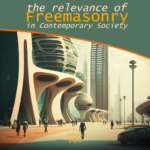 The Relevance of Freemasonry in Contemporary Society The role of Freemasonry in contemporary society is an indispensable one. Despite the challenges and misconceptions it faces, the organization remains steadfast in its humanitarian pursuits and commitment to personal growth and self-betterment. Through its efforts to evolve and adapt to the changing needs of its members and the world, Freemasonry continues to be a vital force in shaping a better future for all. |
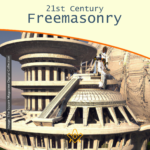 21st Century Freemasonry – a Sign of the Times? A recent article in The Times of London highlighted the dilemma 21st Freemasonry is facing. In this article one Master Mason shares his views of the strengths, and the challenges of modern Masonry. |
Recent Articles: membership
 A Rose by any other Name may not be the same Explore the profound distinctions between conferred and transmitted Masonic degrees with Bro. Scott Wisdahl. Delve into how presentation quality, personal impact, and setting shape these rituals, and consider the potential for digital adaptations in modern Masonic practices. Join the discussion on enhancing the Masonic journey and preserving its essence. |
 Progression through the Degrees; a Rite or a Privilege? Exploring the layered journey of Freemasonry, Matt DA Fletcher probes the essence of progression—whether it's a mere rite or a privileged path. Delve into a nuanced perspective where every degree is not just a milestone but a fraction of a grander continuum. |
 Quantity vs Quality within the world of Freemasonry Dive into the compelling debate of quantity vs quality within the world of Freemasonry. Discover the transformative focus on attracting members aligned with the institution's values, promising not only growth but quality growth. High-value individuals assure sustainable development with their commitment to serving the brotherhood. |
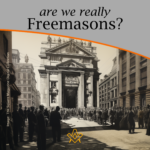 Maybe Freemasonry has opened its doors too wide. Perhaps some have not understood that the survival of Freemasonry in order to achieve its sublime purpose lies not in the number of members it has, but in their quality. Maybe we need less members and more Freemasons. Less men in Freemasonry and more Freemasonry in men. |
 What is ritual and why is it important? P1 Delve into the profound world of Freemasonry rituals and their significance. This insightful piece unravels the underlying importance of rituals, their impact on participants, and the transformative power they hold. Uncover why these centuries-old traditions remain integral to Masonic practice today. |
 Could Freemasonry be helpful for young men? Unravel the Masonic Brotherhood: Could Freemasonry be the antidote to modernity's challenges for young men? Dive in as we explore the Masonic world, its principles, camaraderie, and how its traditional rituals could help forge stronger identities in an increasingly complex world. |
 Discover the remarkable benefits of Lodge Meetings on your well-being. From fostering connections to combating stress, learn how these male-oriented gatherings offer an antidote to anger, hunger, isolation, and exhaustion. Dive into the power of shared experiences, understanding, and camaraderie. Your key to improved mental health awaits inside. |
 Tutorial for a Worshipful Master Unlock the Secrets to Leadership Mastery in our Worshipful Master's Tutorial! Brother Antonio Biella shares step-by-step guidance for Masonic Lodge leaders on honing their roles, duties, and future vision. Discover how to drive growth and engagement in your Lodge, setting ambitious goals and inspiring member participation. |
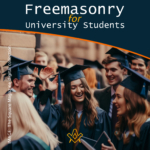 Freemasonry for University Students What are social skillset challenges facing students when they graduate from university ? |
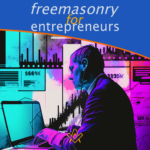 How the Core Values of Freemasonry; Brotherly Love, Relief and Truth Can Be Applied to Improve Productivity For Entrepreneurs |
 Why I became a Freemason: a personal journey of self-improvement Salik Tariq shares his reasons for becoming a Freemason – a journey of self-improvement, finding a community, and personal growth. |
 Freemasonry: Coming out of the Cloisters This paper examines the fundamental tensions on the lines of religion, gender and political ideology that exist in some jurisdictions of Freemasonry. It is on the first of these, religion, on which he makes an initial and exploratory focus. - by Gerald Reilly |
 The Relevance of Freemasonry in Contemporary Society The role of Freemasonry in contemporary society is an indispensable one. Despite the challenges and misconceptions it faces, the organization remains steadfast in its humanitarian pursuits and commitment to personal growth and self-betterment. Through its efforts to evolve and adapt to the changing needs of its members and the world, Freemasonry continues to be a vital force in shaping a better future for all. |
 Has Freemasonry managed to revive and thrive after the darkness of the Pandemic? Robert Lomas gives us some (promising) insights. |
 21st Century Freemasonry – a Sign of the Times? A recent article in The Times of London highlighted the dilemma 21st Freemasonry is facing. In this article one Master Mason shares his views of the strengths, and the challenges of modern Masonry. |
 A concept that is both based on our Freemasonic rituals and what we understand as teamwork. This article by Chris Batty examines why teamwork in the lodge is the network that binds us. |
 Lebanese Freemasonry has been both witness to and sometimes participants in turbulent events and forces, which shaped and influenced their world. |
 Is a Masonic Tradition Necessary? Dealing with Masonic tradition is a complex subject that requires careful analysis in order to reach a balanced point on the best etymological definition and the set of discourses and practices, which often end up being presented as such, without, however, presenting bases that support them, often serving only as a discourse that restricts and controls the masses. Fernando Rodrigues de Souza debates this complex subject. |
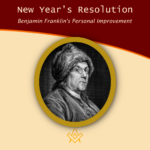 New Year's Resolution with Benjamin Franklin's Personal Improvement Are you ready for a new year's resolution challenge ? To accomplish his life’s goals, at 25 ( around 290 years ago ), Benjamin Franklin developed and committed himself to a personal improvement program that consisted of 13 virtues. You are invited to join me in practicing his daily routine for 2023. |
 The Alberta Masonic Higher Education Bursary Fund is to help the next generation of Albertans, our children and grandchildren, to obtain the education they need to lead successful lives and contribute to the welfare of mankind. As you can see from this little lesson of our history, education is truly a Masonic obligation. |
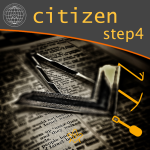 To be a Better Citizen of the World: Step 4 A value proposition for Pure Ancient Masonry as defined in terms of Citizenship; the allegories, symbolism and lessons are a blueprint for all Freemasons to be a better citizen of the world. |
 To be a Better Citizen of the World; Step 3 A value proposition for Pure Ancient Masonry as defined in terms of Citizenship; the allegories, symbolism and lessons are a blueprint for all Freemasons to be a better citizen of the world. |
 In connection with recent article about Freemasonry in the metaverse, we look at how an Egregore applies to Freemasonry in a digital world |
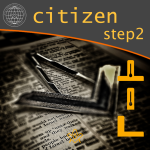 To be a Better Citizen of the World; Step 2 A value proposition for Pure Ancient Masonry as defined in terms of Citizenship; the allegories, symbolism and lessons are a blueprint for all Freemasons to be a better citizen of the world. |
 There are many brotherhoods in the world, and Freemasonry is one of the most significant and successful of them all. This article will be the focus two questions: the importance of brotherhood ? and is there room for improvement in Freemasonry? |
 Intergenerational relations in Masonry: challenges and possibilities Backed with scientific research, Professor Luiz Neto and Professor Alexandre Braune investigate the Intergenerational relations in Freemasonry and explores the challenges and opportunities. |
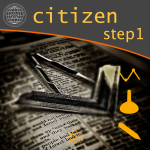 To be a Better Citizen of the World; Step 1 A value proposition for Pure Ancient Masonry as defined in terms of Citizenship; the allegories, symbolism and lessons are a blueprint for all Freemasons to be a better citizen of the world. |
 The Masonic Temple is a platform where both Freemasons and non-Masons, enthusiasts of real art and spiritual growth, connect to the new world of the metaverse. A Freemasonry in the metaverse project, based regular freemasonry principles. |
 Opportunity to fix the Sussex fudge Is there a value proposition for members, that under English Constitution Freemasonry, we have a 4 part offering; Entered Apprentice, Fellowcraft , Master Mason and Companion, conducted in a single craft lodge ? |
 Value Proposition of Freemasonry In addressing declining lodge membership and lack of attendance, we need to assess the value it offers to members. What is value, and what does it mean to you? |
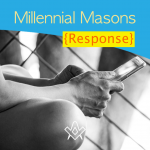 What is a 'Millennial' and what do they want from Freemasonry? You'll be surprised at the answers. |
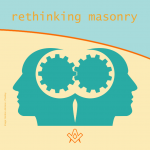 Let us help answer a fundamental question, from a confused newly raised brother asking “What does it all mean and where do I go from here?” |
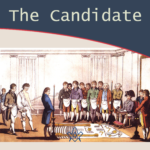 Written in 1930, much of the advice is still relevant today - although some may provoke further thought or debate! |
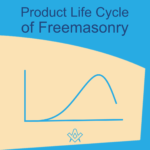 Product Life Cycle of Freemasonry An inconvenient truth about the product life cycle of Freemasonry |
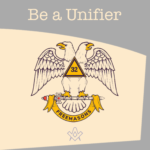 Freemasonry is local. This is where we need to start. We start with our Facebook friends, our neighbours, our colleagues, our lodges… |
 Freemasonry in the time of pandemic The Rule of Six. Localised lockdowns. Second wave? What do we do now?! The answer is simple - engage with members, promote Masonic education and get thinking outside the lodge. |
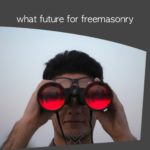 The current functioning of the Masonic movement has some positive aspects and others that are blatantly backward and counterproductive. |
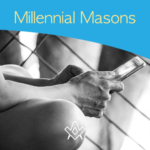 What is a 'Millennial' and what do they want from Freemasonry? You'll be surprised at the answers. |
 How to improve your Lodge Membership Marketing Program. |
 The Anti-Social Impact of Social Media The 'dark side' of social media and its negative effect on our mental health |
 If Freemasonry cannot meet, is this an opportunity to make a change to how we do things? |
 Has your lodge accepted an unknown candidate from the internet? Third in a three-part series looking at the process to accepting candidates via the internet |
 Is the brother of a brother a brother ? Rights to visit - recognition and regularity re-evaluated. |
 The second article in the Unknown Candidate series - Outlining the social media marketing process to attract the unknown candidate to make that first enquiry |
 Ask a random Freemason the purpose of Freemasonry and the likely response will be to “make good men, better”. Research undertaken by James Justin Davis Pennsylvania Academy of Masonic Knowledge. |
 Has your lodge accepted an unknown candidate from the internet? First in a three-part series looking at the process to accepting candidates via the internet |
 Mental Health - Raising its awareness and how we as Freemasons throughout the entire UK can help our fellow brethren and their families when they need it. |
 Share one thought why freemasonry is relevant today - Open question posted on Facebook with a very wide range of responses from Brethren across the globe |
 The Tipping Point of Freemasonry Why do brothers lose interest in Freemasonry and what can we do to get that spark back? At what moment did our own thoughts begin to waver? |
masonic knowledge
to be a better citizen of the world
share the square with two brothers

click image to open email app on mobile device



